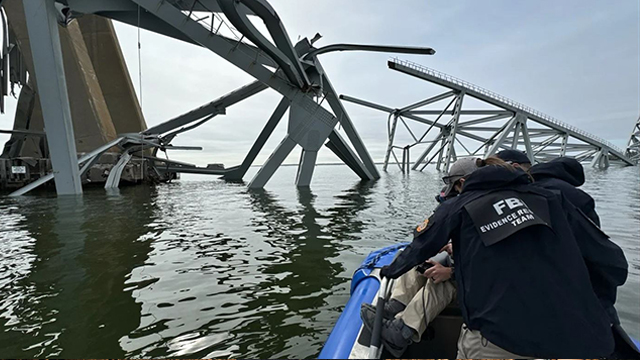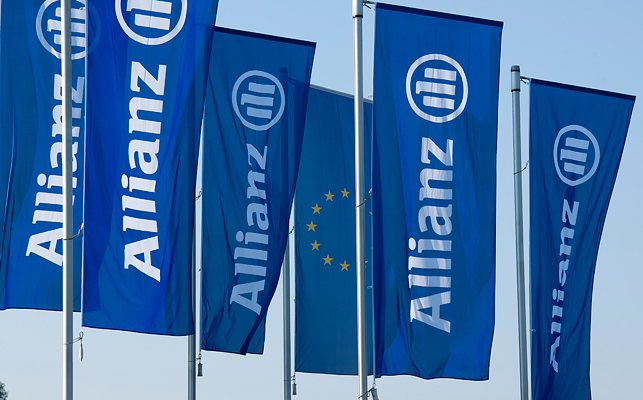Future-ready: Trust, prevention, and digitalization key to meeting customers’ evolving needs
Even Marvel’s Avengers inhabited a VUCA world (volatile, uncertain, complex, and ambiguous)—a world where the traditional approach of simply responding to threats as they arise was not sufficient to address the magnitude of the risks that were emerging. To truly safeguard their world, Avengers realized that they must go beyond just damage control. Throughout the movie franchise, we see their strategy evolve to include not only reacting to threats but actively seeking out ways to prevent them.
They gather intelligence, form alliances, and take preventive actions. In a way, their fictional superhero world mirrors the tectonic shifts we have been experiencing over the past years in our own world as well. With all the curveballs being thrown our way, we have come to realize that we cannot simply wait for something to happen and then take action, we must rather be proactive in trying to mitigate the risks coming our way. As clients and customers, we are also shifting our expectations when it comes to companies’ products and services.
In particular, the insurance landscape is changing as well, in accordance with its clients’ needs and desires: trying to anticipate what the clients might want and need in the future as well as helping them focus more on prevention and safety by utilizing the benefits of digitalization. Insurers are stepping up to provide proactive solutions and risk reduction strategies that can help safeguard their customers’ wellbeing.
Risk mitigation, prevention, and digitalization
In a recent survey conducted by Bain & Company, encompassing more than 28,000 participants from 14 different countries, approximately 80% of respondents expressed their desire for insurers to incorporate environmental, social, and corporate governance (ESG) initiatives as part of their offerings. Additionally, on a global scale, 59% of participants expressed their interest in life insurance providers rewarding them for leading healthy lifestyles.
What consumers want from insurers is not just claims handling, but an ongoing relationship that begins with minimizing the risks that pervade their lives and offers a focus on personal advice service, prevention, and digitalization. If these are done right, consumer loyalty, trust, and advocacy increases.
Trust as a growth engine
According to Edelman’s recent special report, 78% of consumers say that they uncover things that attract them and make them loyal to a brand after the initial sale. Today’s buying behavior is too dynamic for a linear marketing purchase funnel and purchase is no longer the end point but the start of an ongoing relationship with the consumer. Consumers who actively participate in direct brand interactions affirm that such engagements play a vital role in establishing brands' credibility across essential aspects of trust. This includes competence (70%), ethical behavior (60%), and relevance (59%).
Therefore, the concept of the Trust Loop emerges, where the point of sale marks the beginning of an enduring journey, guided by trust throughout.
If there is trust, 59% of consumers are inclined to purchase the brand's new products, even if they are not the cheapest option compared to competitors. Trust leads to two-thirds of consumers staying loyal, supporting the brand even in the face of mistakes, and recommending it to others.
Solution providers: Allianz embraces the Trust Loop
It is clear from this that companies need to nurture consumer relationships with ongoing actions that build trust. Research from Bain & Company points out that insurance customers—particularly millennials, affluent individuals, urban dwellers, and families with children—express a strong desire to minimize risks in their lives. They are open to utilizing risk-prevention services offered by insurers.
To this end, consumers have increasingly embraced digital accessibility, seeking convenience and flexibility in handling simple transactions like address changes or contract information. The pandemic only amplified this preference. Improving digital self-service has become a crucial issue. While human interaction will remain essential for complex or sensitive matters, advanced digital capabilities are needed for risk-prevention services that resonate with customers.
Secure Home
At Allianz, we recognize the significance of prevention and its impact on overall wellbeing.According to the World Health Organization (WHO), injuries resulting from falls are more prevalent among the elderly population and constitute a significant reason for experiencing pain, disability, reduced independence, and untimely mortality. Anticipating the needs of its customers, Allianz Türkiye developed a special risk prevention program named Secure Home intended for customers older than 70 years of age, who might be at risk of fall-related injuries at home.
The program includes a home visit conducted by a professional team. After this visit, customers receive a special report tailored for their home and needs, which identifies unsafe areas and provides advice to mitigate the risk of falls. Additionally, Allianz Türkiye also offers a special gift package that includes support bars, non-slip mats, and a toilet seat risers.
“The Secure Home program had started before the pandemic and it resumed after the lockdowns, once in-person visits were again possible. The program’s analysis report indicates that the fall frequency reduced to 7.2 percent after the implementation of the safety measures, compared to a 15 percent fall frequency among customers older than 70 before the implementation. With a customer satisfaction score of 4.8 out of 5, Secure Home is one of the most important and successful programs Allianz Türkiye has created to help its customers manage their safety and wellbeing,” said Okan Özdemir, Chief Health Officer, Allianz Türkiye.
Closing the gaps ahead of time: thinking of old-age provisions
Global statistics show that COVID-19 will exert a long-term impact on private households, state budgets, and pension systems. On top of that, the aging of the world population keeps accelerating while the fertility rates are dwindling. The inconvenient truth is: we will have to work longer and save more and in a more focused way to sustain our lifestyle in old age. To help people assess how much they can count on when it comes to their pensions, Allianz Leben (Life) in Germany launched the Allianz Rentenkompass (Pension Compass) in 2020. The service, free of charge to anyone interested, is aimed at all age groups—from career starters to people close to retirement.
Since 2020, 700,000 people in Germany have used it to anonymously calculate how much net income they are likely to have left in old age. They have defined a desired pension based on their own data and used the Pension Compass to calculate how close they are to achieving their own desired pension. They can also use the inflation calculator to estimate how much purchasing power their own pension will have at the time of retirement. Based on the current legislation on taxes and social security contributions, the net value of their own pension provision is also calculated.
"It is important that people can realistically assess whether they have made good provision for theirretirement and we want to contribute to this with the Pension Compass," says Alf Neumann, Board Member at Allianz Leben responsible for operations. That's why the Pension Compass takes into account not only the income from statutory, company, and private pension plans, but users can also enter income from real estate and capital assets.
About Allianz
** As of December 31, 2023.



